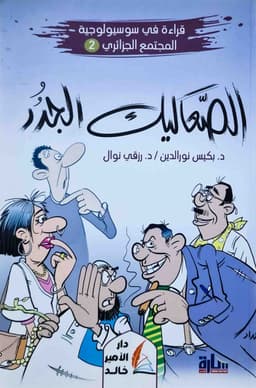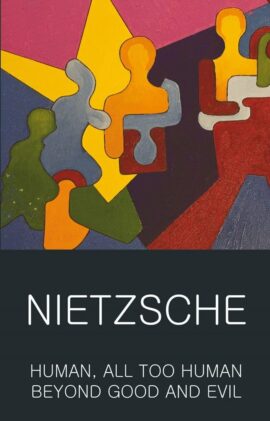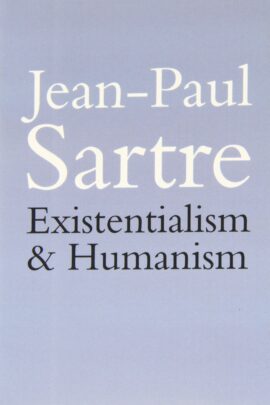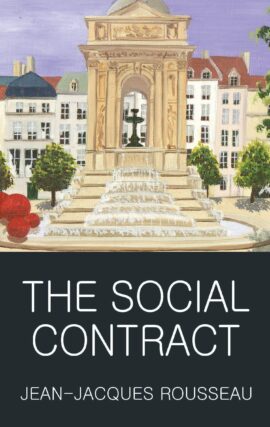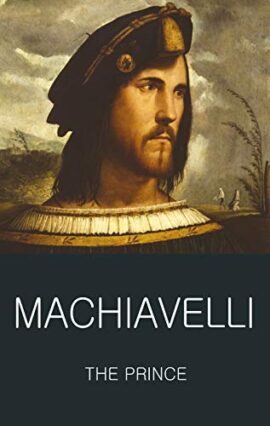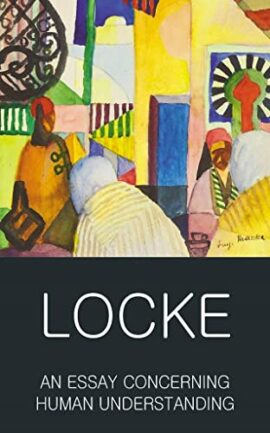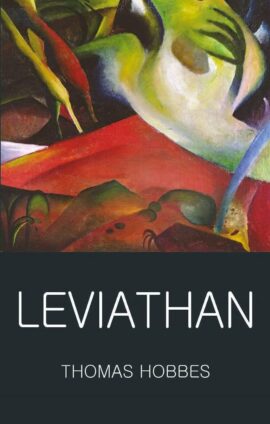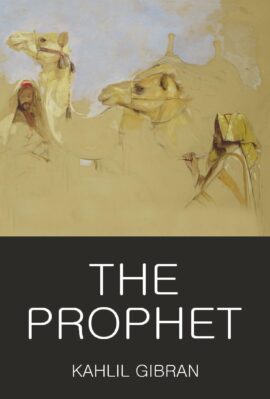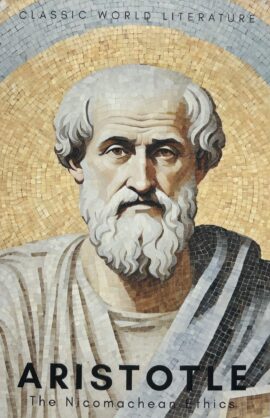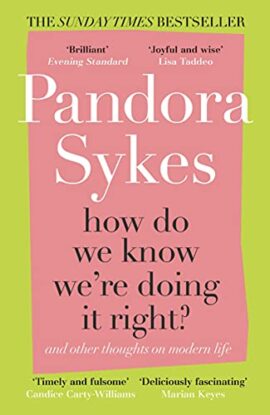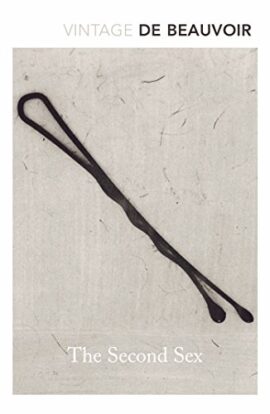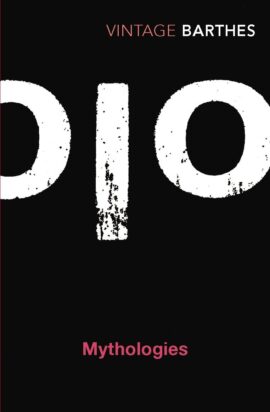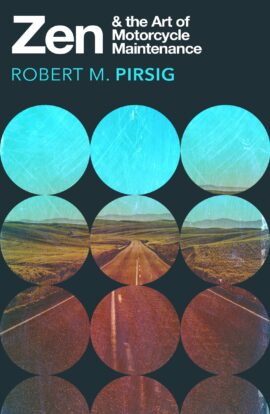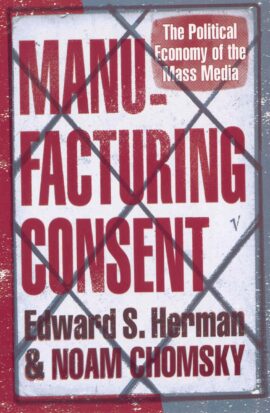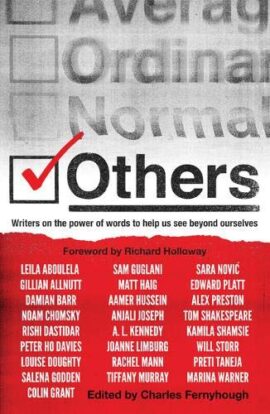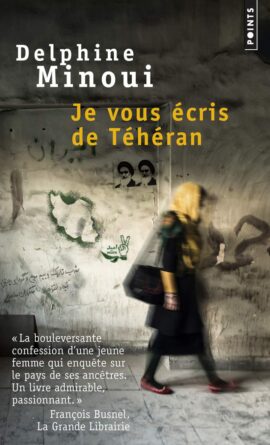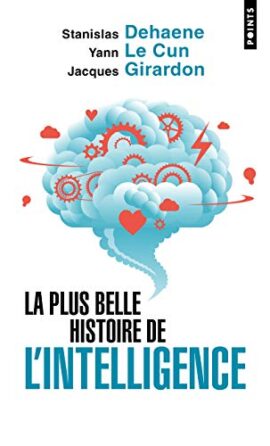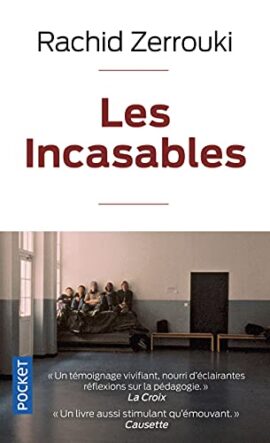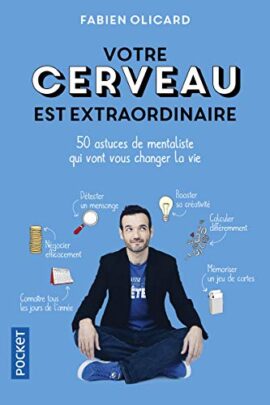Affichage de 1–25 sur 86 résultatsTrié par popularité
Human, All Too Human & Beyond Good and Evil (Classics of World Literature)
Human, All Too Human (1878) marks the point where Nietzsche abandons German romanticism for the French Enlightenment. At a moment of crisis in his life (no longer a friend of Richard Wagner, forced to leave academic life through ill health), he sets out his views in a scintillating and bewildering series of aphorisms which contain the seeds of his later philosophy (e.g. the will to power, the need to transcend conventional Christian morality). The result is one of the cornerstones of his life's work. It well deserves its subtitle `A Book for Free Spirits', and its original dedication to Voltaire, whose project of radical enlightenment here finds a new champion. Beyond Good and Evil (1886) is a scathing and powerful critique of philosophy, religion and science. Here Nietzsche presents us with problems and challenges that are as troubling as they are inspiring, while at the same time outlining the virtues, ideas, and practices which will characterise the philosophy of the future. Relentless, energetic, tirelessly probing, he both determines that philosophy's agenda and is himself the embodiment of the type of thought he wants to foster.
Existentialism and Humanism
Over the past sixty years the writings of Jean-Paul Sartre have probably been more influential in the West than those of any other philosopher and literary figure. In his theoretical writings, Sartre laid the foundation for an original doctrine of Existentialism. His concern, however, was to relate his theory to human response and the practical demands of living. To achieve this, he carried his philosophical concepts into his novels and plays, and there subjected them to the test of imagined experience. His uniqueness lies in the success with which he demonstrated the utility of Existentialist doctrine while creating, at the same time, works of the highest literary merit. Thus Sartre became the populariser of his own literary thought. Originally delivered as a lecture in Paris in 1945, "Existentialism and Humanism" is Jean-Paul Sartre's seminal defence of Existentialism as a doctrine true to Humanism, as opposed to a purely nihilistic creed, and a plan for its practical application to everyday human life. This exploration of one of the central tenets of his philosophical thought has become the essential introduction to his work, and a fundamental text for all students of philosophy.
Culture
One of our most brilliant minds offers a sweeping intellectual history that argues for the reclamation of culture’s valueCulture is a defining aspect of what it means to be human. Defining culture and pinpointing its role in our lives is not, however, so straightforward. Terry Eagleton, one of our foremost literary and cultural critics, is uniquely poised to take on the challenge. In this keenly analytical and acerbically funny book, he explores how culture and our conceptualizations of it have evolved over the last two centuries—from rarified sphere to humble practices, and from a bulwark against industrialism’s encroaches to present-day capitalism’s most profitable export. Ranging over art and literature as well as philosophy and anthropology, and major but somewhat "unfashionable" thinkers like Johann Gottfried Herder and Edmund Burke as well as T. S. Eliot, Matthew Arnold, Raymond Williams, and Oscar Wilde, Eagleton provides a cogent overview of culture set firmly in its historical and theoretical contexts, illuminating its collusion with colonialism, nationalism, the decline of religion, and the rise of and rule over the "uncultured" masses. Eagleton also examines culture today, lambasting the commodification and co-option of a force that, properly understood, is a vital means for us to cultivate and enrich our social lives, and can even provide the impetus to transform civil society.
The Social Contract (Classics of World Literature)
With an Introduction by Derek Matravers.In The Social Contract Rousseau (1712-1778) argues for the preservation of individual freedom in political society. An individual can only be free under the law, he says, by voluntarily embracing that law as his own. Hence, being free in society requires each of us to subjugate our desires to the interests of all, the general will.Some have seen in this the promise of a free and equal relationship between society and the individual, while others have seen it as nothing less than a blueprint for totalitarianism. The Social Contract is not only one of the great defences of civil society, it is also unflinching in its study of the darker side of political systems.
The Prince (Wordsworth Classics of World Literature)
Translated by C.E.Detmold. With an Introduction by Lucille Margaret Kekewich.Written in 1513 for the Medici, following their return to power in Florence, The Prince is a handbook on ruling and the exercise of power. It remains as relevant today as it was in the sixteenth century. Widely quoted in the Press and in academic publications, The Prince has direct relevance to the issues of business and corporate governance confronting global corporations as they enter a new millennium.Much of what Machiavelli wrote has become the common currency of realpolitik, yet still his ideas retain the power to shock and annoy. In the words of Norman Stone, The Prince is 'a manual of man-management that would suit a great many parts of the modern world'.
An Essay Concerning Human Understanding: Second Treatise of Goverment (Wordsworth Classics of World Literature) (English and German Edition)
An Essay Concerning Human Understanding: Second Treatise of Goverment (Wordsworth Classics of World Literature) by John Locke. Notes and Introduction by Mark G. Spencer, Brock University, Ontario John Locke (1632-1704) was perhaps the most influential English writer of his time. His Essay concerning Human Understanding (1690) and Two Treatises of Government (1690) weighed heavily on the history of ideas in the eighteenth century, and Locke's works are often - rightly - presented as foundations of the Age of Enlightenment. Both the Essay and the Second Treatise (by far the more influential of the Two Treatises) were widely read by Locke's contemporaries and near contemporaries. His eighteenth-century readers included philosophers, historians and political theorists, but also community and political leaders, engaged laypersons, and others eager to participate in the expanding print culture of the era. His epistemological message that the mind at birth was a blank slate, waiting to be filled, complemented his political message that human beings were free and equal and had the right to create and direct the governments under which they lived. Today, Locke continues to be an accessible author. He provides food for thought to university professors and their students, but has no less to offer the general reader who is eager to enjoy the classics of world literature.
Leviathan (Wordsworth Classics of World Literature)
Leviathan by Thomas Hobbes with an Introduction by Dr Richard Serjeantson, Trinity College, Cambridge Since its first publication in 1651, Thomas Hobbes's Leviathan has been recognised as one of the most compelling, and most controversial, works of political philosophy written in English. Forged in the crucible of the civil and religious warfare of the mid-seventeenth century, it proposes a political theory that combines an unequivocal commitment to natural human liberty with the conviction that the sovereign power of government must be exercised absolutely. Leviathan begins from some shockingly naturalistic starting-points: an analysis of human nature as being motivated by vain-glory and pride, and a vision of religion as simply the fear of invisible powers made up by the mind. Yet from these deliberately unpromising elements, Hobbes constructs with unparalleled forcefulness an elaborate, systematic, and comprehensive account of how political society ought to be: ordered, law-bound, peaceful. In Leviathan, Hobbes presents us with a portrait of politics which depicts how a state that is made up of the unified body of all its citizens will be powerful, fruitful, protective of each of its members, and - above all - free from internal violence.
THE PROPHET ( Wordsworth Classics of World Literature )
The Prophet represents the acme of Kahlil Gibran's achievement. Writing in English, Gibran adopted the tone and cadence of King James I's Bible, fusing his personalised Christian philosophy with a spirit and oriental wisdom that derives from the richly mixed influences of his native Lebanon. His language has a breath-taking beauty. Before returning to his birthplace, Almustafa, the 'prophet', is asked for guidance by the people of Orphalese. His words, redolent with love and understanding, call for universal unity, and affirm Gibran's certainty of the correlated nature of all existence, and of reincarnation. The Prophet has never lost its immediate appeal and has become a ubiquitous touchstone of spiritual literature.
The Nicomachean Ethics
Nicomachean Ethics by Aristotle, which he is said to have dedicated to his son Nicomachus, Aristotle's guiding question is what is the best thing for a human being? His answer is happiness. Happiness he wrote, is the best, noblest, and most pleasant thing in the world: But he means not something we feel, not an emotion, but rather an especially good kind of life. Happiness is made up of activities in which we use the best human capacities, both ones that contribute to our flourishing as members of a community, and ones that allow us to engage in god-like contemplation. Contemporary ethical writings on the role and importance of the moral virtues such as courage and justice have drawn inspiration from this work, which also contains important discussions on responsibility, practical reasoning, and on the role of friendship in creating the best life.
How Do We Know We’re Doing It Right?: And Other Thoughts On Modern Life
__________________THE SUNDAY TIMES BESTSELLERStop searching for the answers - and start delighting in the questions with Pandora Sykes, co-host of The High Low podcast.'Deliciously fascinating' MARIAN KEYES'Refreshing ... thoughtful, considered' STYLIST'Brilliant' EVENING STANDARD'Timely and fulsome' CANDICE CARTY-WILLIAMS'Joyful and wise' LISA TADDEOModern life is full of choices - but how do we know we're making the right ones? Why, in our attempts to make life easier, do we often make it harder?With a light touch and plenty of humour, Pandora Sykes delves into the myths we've been sold and the stories we tell ourselves, in a timely bid to encourage us to consider the lives we once led, and how they might better serve us. It's time to stop looking for the answers - and start delighting in the questions.__________________'Thoughtful and funny' DOLLY ALDERTON'Like a very clever, lucid, charming friend unpacking all the messy anxieties of modern existence with tremendous intelligence and elan. Read this book. It will help your life' INDIA KNIGHT'Energetic and compelling' OLIVIA SUDJIC'Navigates complicated issues with great humanity, humour and humility ... [it] left me wanting more' SATHNAM SANGHERA'Self-aware, self-deprecating, relatable, funny, and brilliantly curious' STACEY DOOLEY'Witty and zeitgeisty ... strikes a fresh, honest note' VANITY FAIR__________________Readers love Pandora's first book:'A truly marvellous debut''Insightful and beautifully written''Totally brilliant ... I devoured this masterpiece in one sitting''A bright book in a gloomy year''Feeling a lot better about life after finishing this!''I adored Pandora's book and will be thinking about it for a long time.''So clever and thought-provoking''Pandora is a wonderful writer and I found myself unexpectedly in tears by the end'INCLUDES A NEW PROLOGUE
Second Sex
Everyone who cares about freedom and justice for women should read The Second Sex' GuardianSimone de Beauvoir famously wrote, 'One is not born, but rather becomes, a woman'. In this groundbreaking work of feminism she examines the limits of female freedom and explodes our deeply ingrained beliefs about femininity. Liberation, she argues, entails challenging traditional perceptions of the social relationship between the sexes and, crucially, in achieving economic independence.Drawing on sociology, anthropology and biology, The Second Sex is as important and relevant today as when it was first published in 1949.
Mythologies
In this magnificent collection of essays, Barthes explores the myths of mass culture taking as diverse as wrestling, films, plastic and cars, deciphering the symbols and signs within familiar aspects of modern life and, in so doing, unmasking the hidden ideologies and meanings which implicitly affect our thought and behaviour.
Zen and the Art of Motorcycle Maintenance
"Zen and the Art of Motorcycle Maintenance" caused a sensation when it was first published in 1974. The story of the narrator, his son Chris and their month-long motorcycle odyssey from Minnesota to California profoundly affected an entire generation. Both personal and philosophical, this book is a compelling study of relationships, values, madness and, eventually, enlightenment.
When Breath Becomes Air
At the age of thirty-six, on the verge of completing a decade’s training as a neurosurgeon, Paul Kalanithi was diagnosed with inoperable lung cancer. One day he was a doctor treating the dying, the next he was a patient struggling to live.When Breath Becomes Air chronicles Kalanithi’s transformation from a medical student asking what makes a virtuous and meaningful life into a neurosurgeon working in the core of human identity – the brain – and finally into a patient and a new father.
Manufacturing Consent : Political Economy of the Mass Media
In this pathbreaking work, Edward S. Herman and Noam Chomsky show that, contrary to the usual image of the news media as cantankerous, obstinate, and ubiquitous in their search for truth and defense of justice, in their actual practice they defend the economic, social, and political agendas of the privileged groups that dominate domestic society, the state, and the global order.Based on a series of case studies—including the media’s dichotomous treatment of “worthy” versus “unworthy” victims, “legitimizing” and “meaningless” Third World elections, and devastating critiques of media coverage of the U.S. wars against Indochina—Herman and Chomsky draw on decades of criticism and research to propose a Propaganda Model to explain the media’s behavior and performance. What emerges from this work is a powerful assessment of how propagandistic the U.S. mass media are, how they systematically fail to live up to their self-image as providers of the kind of information that people need to make sense of the world, and how we can understand their function in a radically new way.
Extracts From: The Second Sex
Vintage classic feminist texts in short form When this book was first published in 1949 it was to outrage and scandal. Never before had the case for female liberty been so forcefully and successfully argued. De Beauvoir’s belief that ‘One is not born, but rather becomes, a woman’ switched on light bulbs in the heads of a generation of women and began a fight for greater equality and economic independence. These pages contain the key passages of the book that changed perceptions of women forever.
Others: Writers on the power of words to help us see beyond ourselves
It doesn't take much familiarity with the news to see that the world has become a more hate-filled place. In Others, a group of writers explore the power of words to help us to see the world as others see it, and to reveal some of the strangeness of our own selves. Through stories, poems, memoirs and essays, we look at otherness in a variety of its forms, from the dividing lines of politics and the anonymising forces of city life, through the disputed identities of disability, gender and neurodiversity, to the catastrophic imbalances of power that stands in the way of social equality. Whether the theme is a casual act of racism or an everyday interaction with someone whose experience seems impossible to imagine, the collection challenges us to recognise our own otherness to those we would set apart as different. Contributors include: Leila Aboulela, Gillian Allnutt, Damian Barr, Noam Chomsky, Rishi Dastidar, Peter Ho Davies, Louise Doughty, Salena Godden, Colin Grant, Sam Guglani, Matt Haig, Aamer Hussein, Anjali Joseph, A. L. Kennedy, Joanne Limburg, Rachel Mann, Tiffany Murray, Sara Novic, Edward Platt, Alex Preston, Tom Shakespeare, Kamila Shamsie, Will Storr, Preti Taneja and Marina Warner.
Aspects of the Theory of Syntax, 50th Anniversary Edition (The MIT Press)
The fiftieth anniversary edition of a landmark work in generative grammar that continues to be influential, with a new preface by the author.Noam Chomsky's Aspects of the Theory of Syntax, published in 1965, was a landmark work in generative grammar that introduced certain technical innovations still drawn upon in contemporary work. The fiftieth anniversary edition of this influential book includes a new preface by the author that identifies proposals that seem to be of lasting significance, reviews changes and improvements in the formulation and implementation of basic ideas, and addresses some of the controversies that arose over the general framework.Beginning in the mid-fifties and emanating largely from MIT, linguists developed an approach to linguistic theory and to the study of the structure of particular languages that diverged in many respects from conventional modern linguistics. Although the new approach was connected to the traditional study of languages, it differed enough in its specific conclusions about the structure of language to warrant a name, “generative grammar.” Various deficiencies were discovered in the first attempts to formulate a theory of transformational generative grammar and in the descriptive analysis of particular languages that motivated these formulations. At the same time, it became apparent that these formulations can be extended and deepened. In this book, Chomsky reviews these developments and proposes a reformulation of the theory of transformational generative grammar that takes them into account. The emphasis in this study is syntax: semantic and phonological aspects of the language structure are discussed only insofar as they bear on syntactic theory.
50 Philosophy Ideas You Really Need to Know
In a series of 50 accessible essays, Ben Dupré introduces and explains the philosophical questions around knowledge, consciousness, identity, ethics and justice that have engaged the minds of thinkers from the Ancient Greeks to the present day.From Plato's cave to virtue ethics, theories of punishment to animal rights, 50 Philosophy Ideas You Really Need to Know is a complete introduction to the most important philosophical concepts in history.
Je vous écris de Téhéran
Ce soir d’été 2009, en pleine répression des manifestations post-électorales, Delphine Minoui quitte l’Iran précipitamment, la boule au ventre. Quand lui revient le courage d’écrire, elle adresse une longue lettre à Babai, son défunt grand-père, pour lui narrer ces onze années passées à découvrir le pays de ses ancêtres. Avec elle, on plonge dans les soirées interdites de Téhéran, au cœur de l’intimité des mollahs et des miliciens bassidjis et on pénètre dans le labyrinthe des services de sécurité. Face à eux, on suit aussi tout un peuple, ses espoirs et ses déceptions. Elle dessine ainsi les contours d’un Iran contemporain tiraillé entre élans démocratiques et autoritarisme, où l’émotion rime parfois avec contradiction.About the AuthorLauréate du prix Albert-Londres 2006 pour ses reportages en Irak et en Iran, Delphine Minoui est grand reporter, correspondante du Figaro au Moyen-Orient. Née à Paris en 1974 d’une mère française et d’un père iranien, elle vit aujourd’hui au Caire. Elle est l’auteur de Pintades à Téhéran (2007), Moi, Nojoud, dix ans, divorcée (2009) et Tripoliwood (2011).
La Plus belle histoire de l’intelligence
" Une plongée passionnante et toujours accessible dans l'évolution de l'intelligence. "Les ÉchosL'intelligence a émergé avec la vie, elle s'est magnifiée avec l'espèce humaine... Grâce à elle, nous avons tout inventé. Au fil d'un dialogue fascinant, le grand spécialiste du cerveau Stanislas Dehaene et celui des neurones artificiels Yann Le Cun racontent, avec Jacques Girardon, cette longue aventure, des origines animales à nos jours, et s'interrogent sur notre futur. Les machines peuvent-elles nous dépasser ? Un livre qui change radicalement le regard que nous portons sur nous-mêmes.Stanislas Dehaene est chercheur en psychologie et en neurosciences cognitives, professeur au Collège de France.Yann Le Cun, professeur à l'université de New York et ancien chercheur aux Bell Laboratories, est le fondateur et le directeur du Centre de recherche en intelligence artificielle de Facebook.Jacques Girardon est journaliste et écrivain.About the AuthorStanislas Dehaene est chercheur en psychologie et en neurosciences cognitives, professeur au Collège de France, président du conseil scientifique de l'Éducation nationale et membre de l'Académie des sciences. Il dirige le centre NeuroSpin, l'un des plus grands centres internationaux d'imagerie cérébrale.Yann Le Cun, professeur à l'université de New York et ancien chercheur aux Bell Laboratories, est le fondateur et le directeur du Centre de recherche en intelligence artificielle de Facebook. Pionnier des réseaux de neurones, qui dotent les ordinateurs de la capacité d'apprendre, il est le chef de file du deep learning (" apprentissage profond "), sujet qu'il a enseigné en 2016 au Collège de France.Jacques Girardon est journaliste et écrivain. Il a notamment été grand reporter à L'Express et rédacteur en chef de Sciences et Avenir.
Les vertus de l’echec (Docs/récits/essais)
Et si nous changions de regard sur nos échecs ?Les succès viennent rarement sans accroc. Charles de Gaulle, Rafael Nadal, Steve Jobs ou Barbara ont tous essuyé des revers cuisants avant de s'accomplir.Relisant leurs parcours et de nombreux autres à la lumière de Marc Aurèle, saint Paul, Nietzsche ou Freud, cet essai nous apprend à réussir nos échecs. Il nous montre comment chaque épreuve, parce qu'elle nous confronte au réel ou à notre désir profond, peut nous rendre plus lucide, plus combatif, plus vivant.Un petit traité de sagesse qui nous met sur la voie d'une authentique réussite." Un livre qui va redonner un coup d'optimisme à tout le monde. " Laurent Ruquier – RTL" L'un des essais les plus revigorants du moment. " Le Point" L'échec, c'est notre chance ! " ELLE" Il faut lire et relire ce livre dans lequel Charles Pépin décrit la sagesse de ceux qui se sont plantés. " France InterPrix Elina & Louis Pauwels - 2017
Votre cerveau est extraordinaire (Docs/récits/essais)
On ne vous l'avait jamais dit ? Eh oui, votre cerveau est extraordinaire ! Avec quelques bons conseils, et deux, trois trucs, il n'appartient qu'à vous d'en développer tout le potentiel.Découvrez des expériences à mener et des astuces pour bluffer les gens, mais aussi améliorer votre vie au quotidien : comment aborder un inconnu, reconnaître un menteur, lire dans les pensées, faire passer les migraines...Votre cerveau a des ressources que vous ne soupçonniez pas. Fabien Olicard vous les révèle et vous explique comment les mettre à profit !






